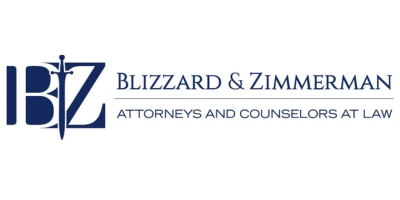What do you do to present evidence that was not presented at your trial that could help you get out of prison?
So you’ve been convicted of a serious criminal offense that landed you in prison or on probation.
What do you do to present evidence that was not presented at your trial that could help you get out of prison?
Think about your stance in the process. First, you have to reflect on where you are in the process. How long ago were you convicted? If you were convicted within 30 days ago, you could file a motion for a new trial.
Filing a Motion For a New Trial
A motion for a new trial can allege new facts outside of the record of your trial.
For example, if you had someone come into court to testify against you and you later discovered (either from their confession or from the investigation) that they lied, then you could present this evidence in an affidavit.
Also, if there’s evidence that was available, but you didn’t know about, or your lawyer failed to point out that evidence- you can also present that in an affidavit that goes with your motion for a new trial.
When is a Motion For a New Trial Usable?
The motion for a new trial is only usable within 30 days. You have to file the motion for a new trial and have your affidavits attached and alleged grounds in there. Keep in mind that it cannot be amended to allege new grounds after 30 days.
The 30 days period is the best time to assert it to get the quickest relief because the trial court there can overturn your conviction or can at least preserve those issues for your direct appeal.
What if You’re in Prison and Undergoing the Direct Appeal Process?
On the other hand, if you’re in prison, and going through the direct appeal process, unfortunately, you can’t file anything to prove your innocence or evidence of your innocence (or evidence that your lawyer had but did not present related to your innocence), until your appeal has run. That’s called your direct appeal.
Ultimately you could pursue the United States Supreme Court as well. Many people don’t that step, however. But in any case, that direct appeal process has to go fully through, and there has to be the mandate. The mandate has to be issued from the court of criminal appeals in order to make your conviction “final,” and that’s called the final conviction.
File a Writ of Habeas Corpus
Once you reach the final conviction stage, that’s when the 11.07 applications for writ of habeas corpus can be filed. An 11.07 writ of habeas corpus application layout the grounds, which you believe you’re entitled to relief from your conviction.
In other words, an 11.07 writ of habeas corpus application is the constitutional illegality of sending you to jail. Your being in prison is not in compliance with the constitution in some way.
Traditionally, those are going to be ineffective assistance of counsel, prosecutorial misconduct, and due process violations. But there are actual innocence claims also.
Types of Actual Innocence Claims
There are two sides to actual innocence. First off, you can present an actual innocence claim with fresh evidence that proves that chances are you’re not guilty of the offense you were sentenced for. You prove you are not guilty by clear and convincing evidence, essentially.
Then there’s another way you can prove that a constitutional violation occurred in your trial, such as ineffective assistance of counsel, withholding evidence by the prosecution- it’s called the Brady material or exculpatory evidence, due process violation that may have occurred in your case.
You present that in your writ application. You submit it with a brief and submit it to the trial court. Be sure to attach the affidavits of these people. And if you don’t have these people, then you need to attach your own affidavit or affidavits of people with knowledge, such as an investigator or an attorney.
At the evidentiary hearing, the court’s going to accept that evidence and weigh its credibility.
Once the court weighs that evidence, they’re going to make some findings, and produce those findings to the court of criminal appeals.
About The Attorney

Jacob Blizzard is board certified in both criminal law and criminal appellate law.
He regularly practices in the areas of state and federal criminal defense, criminal appeals, post conviction writs of habeas corpus.
In Texas, there are more than 100,000 attorneys licensed to practice, but only 7,450 are board certified.
In the entire State of Texas, as of the 2019 certification year, there were only 87 attorneys board certified in both criminal law and criminal appellate law, making Mr. Blizzard one of 0.087% of attorneys in Texas to hold both of those certifications.

